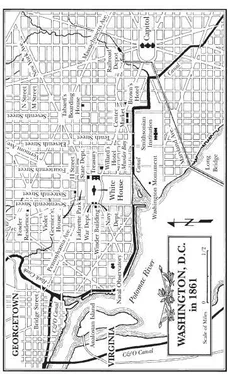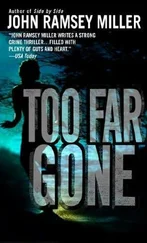John Miller - The First Assassin
Здесь есть возможность читать онлайн «John Miller - The First Assassin» весь текст электронной книги совершенно бесплатно (целиком полную версию без сокращений). В некоторых случаях можно слушать аудио, скачать через торрент в формате fb2 и присутствует краткое содержание. Жанр: Исторический детектив, на английском языке. Описание произведения, (предисловие) а так же отзывы посетителей доступны на портале библиотеки ЛибКат.
- Название:The First Assassin
- Автор:
- Жанр:
- Год:неизвестен
- ISBN:нет данных
- Рейтинг книги:3 / 5. Голосов: 1
-
Избранное:Добавить в избранное
- Отзывы:
-
Ваша оценка:
- 60
- 1
- 2
- 3
- 4
- 5
The First Assassin: краткое содержание, описание и аннотация
Предлагаем к чтению аннотацию, описание, краткое содержание или предисловие (зависит от того, что написал сам автор книги «The First Assassin»). Если вы не нашли необходимую информацию о книге — напишите в комментариях, мы постараемся отыскать её.
The First Assassin — читать онлайн бесплатно полную книгу (весь текст) целиком
Ниже представлен текст книги, разбитый по страницам. Система сохранения места последней прочитанной страницы, позволяет с удобством читать онлайн бесплатно книгу «The First Assassin», без необходимости каждый раз заново искать на чём Вы остановились. Поставьте закладку, и сможете в любой момент перейти на страницу, на которой закончили чтение.
Интервал:
Закладка:
“Did you ship the package?” asked Rook.
“Yes. The train left a few minutes ago.”
“Good. Stay here with our friend,” he said, tipping his head toward Grenier. “I want to mingle a bit.”
The crowd was growing larger. Rook estimated that a thousand people gathered in Lincoln’s vicinity, and more kept arriving from the homes and stores nearby. A group of soldiers-a band carrying musical instruments-organized themselves near the steps. Rook walked toward them and climbed up for a better view.
Below, on the lawn, an officer from New York approached Lincoln. They exchanged a few words, and the president nodded.
“I’ve been asked to swear you in,” said Lincoln, speaking as loudly as he could manage. “Would you like that?”
The soldiers burst out in approval. In New York, they had been sworn in for thirty days of service. But that was not long enough. Rook knew that one of their first orders of business in Washington was to swear in for ninety days.
“Before I do, allow me a few words,” said Lincoln. Shushes and calls for quiet rippled through the crowd. Suddenly the racket in front of the Capitol dropped to almost total silence. “I have desired as sincerely as any man that our present difficulties might be settled without the shedding of blood,” said Lincoln. “I will not say that all hope is yet gone, but if the alternative is presented whether the Union is to be broken into fragments and the liberties of the people lost or blood be shed, then I know you will stand for Union.”
The throng roared its approval. The leaders of the Seventh Regiment broke their men into companies. Taking direction from Lincoln, they raised their right hands and swore in the name of God to be good soldiers. When it was done, they cheered again and congratulated each other. The band broke into “Hail Columbia,” and many of the men sang the words. Their voices swelled when they hit the chorus:
Firm, united let us be,
Rallying round our liberty,
As a band of brothers joined,
Peace and safety we shall find.
As Rook hummed the tune, he watched the commander of the Seventh Regiment of New York lead Lincoln toward the Capitol. Apparently they were going to walk its halls. Their progress was slow, as soldiers and civilians approached Lincoln to shake his hand. The officer tried to fend them off, but Lincoln kept obliging. The president seemed utterly at ease. Rook noticed that rather than clenching hands, Lincoln kept grasping men at their fingers. The colonel realized that it was probably the only thing the president could do to prevent his hand from becoming sore from all of the squeezing.
Within a few minutes, Lincoln was near the steps, close to Rook as well as close to the spot from which he had delivered his inaugural address. A crowd continued to swirl around him. From the side, Rook noticed a man of the cloth advance toward the president. He was probably the pastor from one of the churches on Capitol Hill.
His presence reminded Rook of Lincoln’s words on March 4. Toward the end of his speech, the president had commented that both Northerners and Southerners believed that they had justice on their side. If that was true, he said, then both should have the patience in “the Almighty Ruler of nations” to let justice prevail. Yet Lincoln was also resolute: “You have no oath registered in Heaven to destroy the government, while I shall have the most solemn one to ‘preserve, protect, and defend’ it.”
Rook recalled the pledge he had made to himself on that day: he had vowed to protect and defend Lincoln, even with his own life.
When the pastor’s head swiveled briefly in Rook’s direction, a flicker of recognition gripped the colonel. He wore a hat, so Rook could not see the ear. Was it the shape of the chin? A look in the eyes? The pastor turned away before Rook could be sure of anything. Yet something told him to make good on his promise right now.
Mazorca adjusted the brim of his hat another time. It already flopped down well enough to hide his ear, but he wanted to be sure. Staring over his spectacles, which he had let slip to the end of his nose so that they would disguise his face but not distort his vision, Mazorca saw Lincoln standing just fifteen feet away. The president was pumping hands and listening to a soldier say how proud he was to have cast his first presidential vote for him.
When the band struck up “Yankee Doodle,” Mazorca realized that he had found his moment. He might not get this close again. One shot. He knew he could get away. The noise and the crowd would create the confusion he needed. And nobody would suspect a preacher who clutched a Bible.
He had thought seriously about giving up. After descending the Washington Monument early in the morning, he walked to the edge of the Potomac River. Unsure about what to do, he headed east, toward the Capitol. He passed a few people who took no particular heed of him. With his hat pulled down tight, his collar up, his spectacles on, his cheeks covered in stubble, and his eyes cast to the ground, he avoided suspicion. The Bible-or a book that appeared on the outside to be a Bible-was a fortunate coincidence because it matched his outfit. Mazorca did not like to rely upon luck, but in this case he welcomed it.
Luck seemed to strike again as he went by the Capitol. Soldiers were gathering by the hundreds. He did not want to go anywhere near them, but he stopped to watch. A few minutes later, a carriage pulled up. A tall man in a black stovepipe hat got out. Mazorca did not believe in fate, but Lincoln’s sudden appearance gave him pause. Rather than conceding defeat, he decided to claim victory.
He listened to Lincoln’s jokes, his brief remarks, and his swearing-in of the soldiers. It was impossible to get close enough. He needed to arrive at almost point-blank range, and ideally when the crowd was starting to break up. If all eyes were locked on Lincoln, there was no way Mazorca could succeed.
Then it happened. The soldiers fell out of rank, the band struck up a tune, and a mass of people swarmed the president. Most were soldiers, but not all-and Mazorca plunged in behind a few civilians. He noticed that Lincoln was heading toward the Capitol. He worked through the crowd to get in position for the president to walk right past him.
When Lincoln was a dozen feet away, Mazorca fixed his hat a final time. He reached for his book’s yellow ribbon and jerked it. The music muffled the click of the gun’s cocking. When Lincoln was ten feet away, Mazorca grabbed the red ribbon and held it taut. With the book at waist level, he slanted it slightly upward so that its bullet would rip into Lincoln’s chest. A soldier stood in front of him, blocking his shot. When Lincoln was five feet away, the soldier reached out to shake the president’s hand.
“Sir,” shouted the soldier, “I believe that God Almighty and Abraham Lincoln are going to save this country!”
Mazorca took half a step to his right. He remained behind the soldier, but the book had an angle. He pulled hard on the ribbon. The gun went off.
Rook did not hear the shot-nobody did, amid the noise of the crowd and the music of the band-but he felt the bullet dig into his left arm. What he heard, instead, was laughter: Lincoln had made another one of his wisecracks, telling the soldier who was shaking his hand, “Private, I believe you’re half right!”
At first, Rook merely felt the bullet’s impact. Uncertain about the pastor’s actual identity, he had tried to force his body in front of the president. When he saw the man turn and move away swiftly, he knew it was Mazorca. He wanted to point and yell, but it was too late: the searing pain of his wound made him clench his teeth and double over. Lincoln kept walking and his pack of followers streamed by Rook. Nobody knew that a shot had been fired or that the colonel had been hit.
Читать дальшеИнтервал:
Закладка:
Похожие книги на «The First Assassin»
Представляем Вашему вниманию похожие книги на «The First Assassin» списком для выбора. Мы отобрали схожую по названию и смыслу литературу в надежде предоставить читателям больше вариантов отыскать новые, интересные, ещё непрочитанные произведения.
Обсуждение, отзывы о книге «The First Assassin» и просто собственные мнения читателей. Оставьте ваши комментарии, напишите, что Вы думаете о произведении, его смысле или главных героях. Укажите что конкретно понравилось, а что нет, и почему Вы так считаете.












